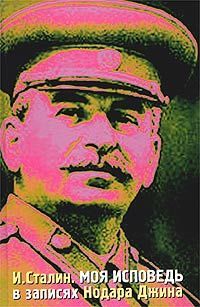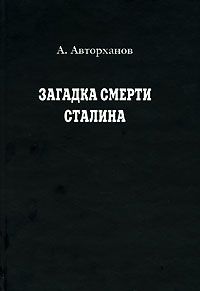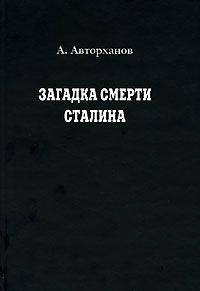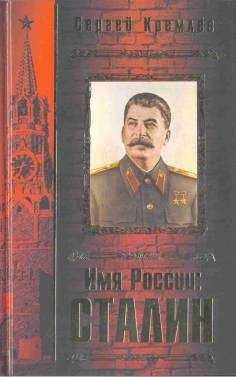Евгений Морозов - Интернет как иллюзия. Обратная сторона сети
Goldstone, J. Towards a Fourth Generation of Revolutionary Theo-ry // Annual Review of Political Science 4 (2001): 139–187.
Granville, J. C. Radio Free Europe’s Impact on the Kremlin in the Hungarian Crisis of 1956: Three Hypotheses // Canadian Journal of History 39, no. 3 (2004): 515–546.
Grodsky, B. Lessons (Not) Learned: A New Look at Bureaucratic Politics and US Foreign Policy-Making in the Post-Soviet Space // Problems of Post-Communism 56, no. 2 (2009): 43–57.
Hachten, W. The Triumph of Western News Communication // Fletcher Forum of World Affairs 17 (1993): 17.
Henderson, S. Patriotic Chinese Hackers Attack Website of Melamine Poisoned Children // Dark Visitor, January 23, 2009. www.thedark-visitor.com/2009/01/patriotic-chinese-hackers-attack-website-of-melamine-poisoned-children/.
Hokenos, P. Past Forward // Boston Review, March 2010.
Jacoby, J. Despite Forecasts, Freedom Takes More Than Technology // Boston Globe, April 25, 2010.
Jacoby, J. Medium Isn’t the Message // Boston Globe, April 28, 2010. Jervis, R. Bridges, Barriers, and Gaps: Research and Policy // Political Psychology 29, no. 4 (2008): 571–592.
Jervis, R. Understanding Beliefs // Political Psychology 27, no. 5 (2006): 641–663.
Judt, T. A Story Still to Be Told // New York Review of Books, March 23, 2006.
Kahneman, D., and G. Klein Conditions for Intuitive Expertise: A Failure to Disagree // American Psychologist 64, no. 6 (2009): 515–526.
Kalandadze, K., and M. A. Orenstein Electoral Protests and Democratization: Beyond the Color Revolutions // Comparative Political Studies 42, no. 11 (2009): 1403.
Kaldor, M. H. The Ideas of 1989: The Origins of the Concept of Glo-bal Civil Society // Transnational Law & Contemporary Prob-lems 9 (1999): 475.
Kaminski, M. M. How Communism Could Have Been Saved: For-mal Analysis of Electoral Bargaining in Poland in 1989 // Public Choice 98, no. 1 (1999): 83–109.
Kegley, C. W., Jr. How Did the Cold War Die? Principles for an Au-topsy // Mershon International Studies Review 38, no. 1 (1994): 11–41.
Kopstein, J. 1989 as a Lens for the Communist Past and Post-Communist Future // Contemporary European History 18, no. 3 (2009): 289–302.
Kopstein, J. The Transatlantic Divide over Democracy Promotion // Washington Quarterly 29, no. 2 (2006): 85–98.
Kotkin, S., and J. T. Gross Uncivil Society: 1989 and the Implosion of the Communist Establishment. New York: Modern Library, 2009.
Kramer, M. The Collapse of East European Communism and the Re-percussions Within the Soviet Union (Part 1) // Journal of Cold War Studies 5, no. 4 (Fall 2003): 178–256.
Kramer, M. The Collapse of East European Communism and the Re-percussions Within the Soviet Union (Part 3) // Journal of Cold War Studies 7, no. 1 (Winter 2005): 3–96.
Kramer, M. Special Issue: The Collapse of the Soviet Union (Part 2):
Introduction // Journal of Cold War Studies 5, no. 4 (Fall 2003): 3–42. Kuran, T. Now Out of Never: The Element of Surprise in the East
European Revolution of 1989 // World Politics: A Quarterly Jour-nal of International Relations 44, no. 1 (1991): 7–48.
Kurki, M. Critical Realism and Causal Analysis in International Re-lations // Millennium: Journal of International Studies 35, no. 2 (2007): 361.
Lake, D. A., Powell, R., Choice, S., et al. Adapting Inter-national Relations Theory to the End of the Cold War // Journal of Cold War Studies 5, no. 3 (2003): 96–101.
Lake, Eli Hacking the Regime // New Republic 240, no. 16 (2009). Lakoff, G., and M. Johnson Metaphors We Live By. Chicago:
University of Chicago Press, 1980.
Lane, D. “Coloured Revolution” as a Political Phenomenon // Journal of
Communist Studies and Transition Politics 25, no. 2 (2009): 113–135. Lawson, G. Historical Sociology in International Relations: Open So-ciety, Research Programme and Vocation // International Politics 44, no. 4 (2007): 343–368.
Leedom-Ackerman, J. The Intensifying Battle over Internet Free-dom // Christian Science Monitor, February 24, 2009.
Levy, J. S. Learning and Foreign Policy: Sweeping a Conceptual Mine-field // International Organization 48, no. 2 (1994): 279–312.
Lohmann, S. Collective Action Cascades: An Informational Rationale for the Power in Numbers // Journal of Economic Surveys 14, no. 5 (2000): 655–684.
Lohmann, S. The Dynamics of Informational Cascades: The Monday Demonstrations in Leipzig, East Germany, 1989—91 // World Poli-tics 47, no. 1 (1994): 42–101.
Mahoney, J., Kimball, E., and K. L. Koivu The Logic of His-torical Explanation in the Social Sciences // Comparative Political Studies 42, no. 1 (2009): 114.
Mahoney, J., and R. Snyder Rethinking Agency and Structure in the Study of Regime Change // Studies in Comparative International Development 34, no. 2 (1999): 3–32.
McConnell, M. Mike McConnell on How to Win the Cyber-War We’re Losing // Washington Post, February 28, 2010.
McFaul, M. The Fourth Wave of Democracy and Dictatorship: Non-cooperative Transitions in the Postcommunist World // World Poli-tics 54, no. 2 (2002): 212–244.
Moe, H. Everyone a Pamphleteer? Reconsidering Comparisons of Me-diated Public Participation in the Print Age and the Digital Era // Media, Culture & Society 32, no. 4 (2010): 691.
Nairn, T. Where’s the Omelette? // London Review of Books, No-vember 23, 2008.
Nelson, M. War of the Black Heavens: The Battles of Western Broad-casting in the Cold War. Syracuse, NY: Syracuse University Press, 1997.
Osgood, K. A. Hearts and Minds: The Unconventional Cold War // Journal of Cold War Studies 4, no. 2 (2002): 85–107.
Oushakine, S. A. The Terrifying Mimicry of Samizdat // Public Cul-ture 13, no. 2 (2001): 191.
Palmer, M. Breaking the Real Axis of Evil: How to Oust the World’s
Last Dictators by 2025. Lanham, MD: Rowman & Littlefield, 2003. Patterson, E., and J. Amaral Presidential Leadership and De-mocracy Promotion // Public Integrity 11, no. 4 (2009): 327–346.
Pierskalla, J. H. Protest, Deterrence, and Escalation: The Strategic Calculus of Government Repression // Journal of Conflict Resolution 54, no. 1 (2010): 117.
Posner, M. H., and A. Ross Briefing on Internet Freedom and 21st Century Statecraft. U. S. Department of State, Washington, DC, January 22, 2010.
Puddington, A. Broadcasting Freedom: The Cold War Triumph of Radio Free Europe and Radio Free Liberty. Lexington: University Press of Kentucky, 2000.
Ray, J. L., and B. Russett The Future as Arbiter of Theoretical Controversies: Predictions, Explanations and the End of the Cold War // British Journal of Political Science 26, no. 4 (1996): 441–470.
Reagan Urges “Risk” on Gorbachev: Soviet Leader May Be Only Hope for Change, He Says // Los Angeles Times, June 13, 1989.
Rosati, J. A. A Cognitive Approach to the Study of Foreign Policy // Foreign Policy Analysis: Continuity and Change in Its Second
Generation (1995): 49–70.
Rose, R., and D. C. Shin Democratization Backwards: The Prob-lem of Third-Wave Democracies // British Journal of Political Science 31, no. 2 (2001): 331–354.
Said, Edward Hey, Mister, You Want Dirty Book? // London Review of Books, September 20, 1999.
Saunders, D. In Czechoslovakia, Human Network Made the Message
Go Viral // Globe and Mail (Toronto), October 29, 2009. Saxonberg, S. The “Velvet Revolution” and the Limits of Rational
Choice Models // Czech Sociological Review 7, no. 1 (1999): 23–36. Schipani-AdÚriz, A. Through an Orange-Colored Lens: Western
Media, Constructed Imagery, and Color Revolutions // Demokra-tizatsiya: The Journal of Post-Soviet Democratization 15, no. 1 (2007): 87–115.
Schmitter, P. C., and T. L. Karl What Democracy Is … and Is Not // Journal of Democracy 2, no. 3 (1991): 75–88.
Schmitter, P. C., and J. Santiso Three Temporal Dimensions to the Consolidation of Democracy // International Political Science Re-view/Revue internationale de science politique 19, no. 1 (1998): 69–92.
Senor, D., and C. Whiton Five Ways Obama Could Promote Freedom in Iran // Wall Street Journal, June 17, 2009.
Shah, N. From Global Village to Global Marketplace: Metaphorical Descriptions of the Global Internet // International Journal of Me-dia and Cultural Politics 4, no. 1 (2008): 9–26.
Shane, S. Dismantling Utopia: How Information Ended the Soviet Union. Chicago: I. R. Dee, 1995.
Sharman, J. C. Culture, Strategy, and State-Centered Explanations of
Revolution, 1789 and 1989 // Social Science History 27, no. 1 (2003). Shimko, K. L. Metaphors and Foreign Policy Decision Making // Po-litical Psychology 15, no. 4 (1994): 655–671.
Shimko, K. L. Psychology and Cold War History: A Review Essay // Political Psychology 15, no. 4 (1994): 801–806.
Shimko, K. L. Reagan on the Soviet Union and the Nature of Inter-national Conflict // Political Psychology. 13, no. 3 (1992): 353–377.
Shirk, S. L. Changing Media, Changing Foreign Policy in China //
Japanese Journal of Political Science 8, no. 1 (2007): 43–70. Silitski, V. What Are We Trying to Explain? // Journal of Demo-cracy 20, no. 1 (2009): 86–89.
Snyder, R. S. The End of Revolution? // Review of Politics 61, no. 1 (1999): 5–28.
Sontag, S. Illness as Metaphor; and AIDS and Its Metaphors. New York: Picador, 2001.
Specter, A. Attack the Cyberwalls! // Pittsburgh Post-Gazette, July 7, 2009.
Sterling, B. Triumph of the Plastic People // Wired, January 22, 1995. Stier, K. U. S. Girds for a Fight for Internet Freedom // Time, Febru-ary 6, 2010.
Sunstein, C. R. Hazardous Heuristics // University of Chicago Law Review 70, no. 2 (2003): 751–782.
Suri, J. Explaining the End of the Cold War: A New Historical Consen-sus? // Journal of Cold War Studies 4, no. 4 (2002): 60–92.
Sweller, J., Mawer, R. F., and W. Howe Consequences of His-tory-Cued and Means-End Strategies in Problem Solving // Ameri-can Journal of Psychology 95, no. 3 (1982): 455–483.
Tait, R. Hardliners Turn on Ahmadinejad for Watching Women Danc-ers // Guardian, December 5, 2006.
Tetlock, P. E., and C. McGuire Cognitive Perspectives on Fo-reign Policy / In: Long, S., ed. Political Behavior Annual. Boulder: Westview, 1986.
Tilly, C. Trust and Rule // Theory and Society 33, no. 1 (2004): 1–30. Tsui, L. The Great Firewall as Iron Curtain 2.0: The Implications of
China’s Internet Most Dominant Metaphor for US Foreign Policy. Paper presented at 6th annual Chinese Internet Research Confe-rence, University of Hong Kong, June 13–14, 2008. jmsc.hku.hk/ blogs/ circ/ files/ 2008/ 06/tsui_lokman.pdf.
Tsui, L. An Inadequate Metaphor: The Great Firewall and Chinese In-ternet Censorship // Global Dialogue 9, no. 1–2 (2007).
Ungar, S. Misplaced Metaphor: A Critical Analysis of the Knowledge Society // Canadian Review of Sociology/Revue canadienne de so-ciologie 40, no. 3 (2003): 331–347.
Vasina, J. I. Transformation of Eastern Europe in 1989: Impacts of Information, Communications Technology and Globalization
Process on Change. Master’s thesis, Excelsior College, March 7, 2007.
Vertzberger, Y. Y. I. Foreign Policy Decisionmakers as Practical-Intuitive Historians: Applied History and Its Shortcomings // Inter-national Studies Quarterly 30, no. 2 (1986): 223–247.
Way, L. The Real Causes of the Color Revolutions // Journal of Democ-racy 19, no. 3 (2008): 55–69.
Way, L. A., and S. Levitsky Linkage, Leverage, and the Post-Communist Divide // East European Politics and Societies 21, no.1 (2007): 48.
Wells, W. G., Jr. Politicians and Social Scientists: An Uneasy Rela-tionship // American Behavioral Scientist 26, no. 2 (1982): 235. Wyatt, S. Danger! Metaphors at Work in Economics, Geophysiology, and the Internet // Science, Technology & Human Values 29, no. 2 (2004): 242.
Youngs, R. European Approaches to Democracy Assistance: Learning the Right Lessons? // Third World Quarterly 24, no. 1 (2003): 127–138.
Глава 3. Оруэлл и “ржачные котики”America’s Emobyte Deficit // Economist, November 27, 2007.
Ballard, J. G. “Aldous Huxley: An English Intellectual” by Nicholas
Murray // Guardian, April 13, 2002.
Barboza, D. Internet Boom in China Is Built on Virtual Fun // New York
Times, February 5, 2007.
Barboza, D. The People’s Republic of Sex Kittens and Metrosexuals //
New York Times, March 4, 2007.
Berdahl, D. Where the World Ended: Re-unification and Identity in the
German Borderland. Berkeley: University of California Press, 1999. Betts, P. The Twilight of the Idols: East German Memory and Material
Culture // Journal of Modern History 72, no. 3 (2000): 731–765. Breitenborn, U. “Memphis Tennessee” in Borstendorf: Boundaries Set and Transcended in East German Television Entertainment // Histo-rical Journal of Film, Radio and Television 24, no. 3 (2004): 391–402.
Chang, Anita Some Internet Porn Sites in China Now Accessible //
Associated Press, July 22, 2010.




